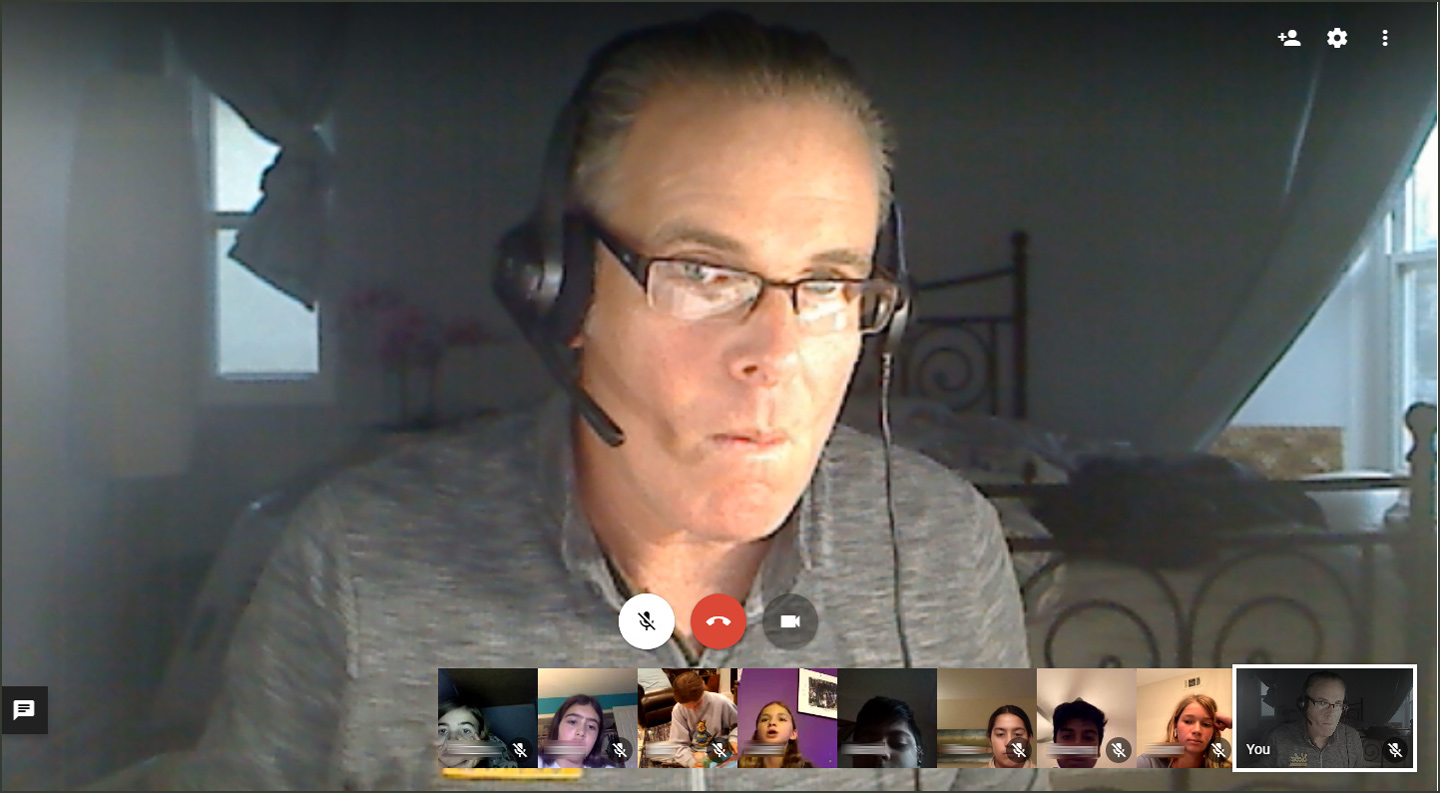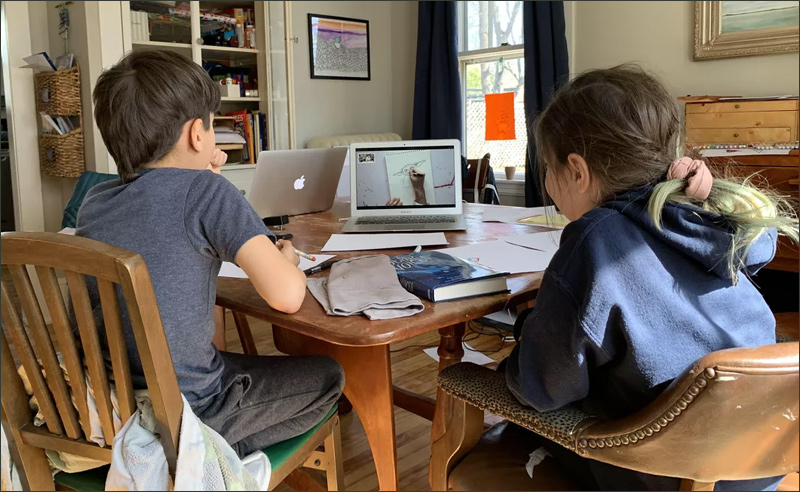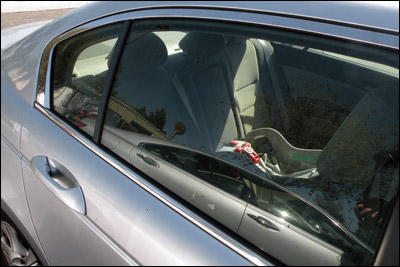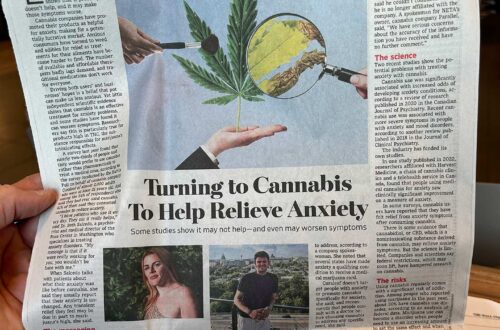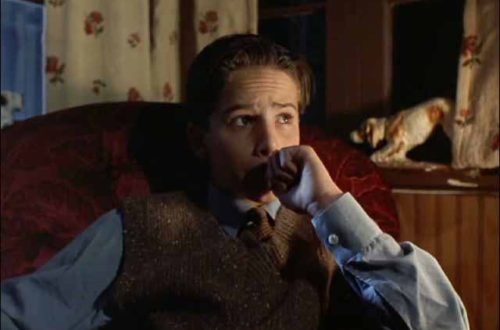“Parents are the first and foremost educators of their children. Their role as educators is so decisive that scarcely anything can compensate for their failure in it.”
Vatican II
We are fourteen days into this home-school experiment. On March 13, 2020 the local authorities cancelled school, and we have been at home since. The government has ordered us to “shelter in place” so as to help prevent the spread of the novel Coronavirus and “flatten the curve” and relieve pressure on the health care system. So Maria and I have taken over as teachers for our own children. Nobody else was going to do it, after all. I imagine millions of other families in America and around the world find themselves in a similar situation. We are making it up as we go along.
How has it gone?
That is a fair question. It has been a learning process. But school and learning at home is gathering momentum. It can be overwhelming, as there is so much to learn but where exactly to start? How to structure the day? How to reconcile the different roles of teacher and parent? Student and child? What course of study is doable and what is not? How quickly should we pace the curriculum? How much should the parent/teacher crack the whip? How much should we relax and go with the flow?*
As we started home-schooling, Maria and I had many questions. But we had few obvious answers.
Here is another question: “How does one eat an elephant?” The answer: one bite at a time. Home-schooling can take on a tinge of that one-step-at-a-time process by which one eventually completes the Appalachian Trail. The bad might be that a parent has less ability than a teacher to stand over a student and tell them to “suck it up, Buttercup!” and complete the assignment. But the good news is that since school is literally in session all the time to a greater or lesser degree, you can insert mini-lessons and reinforce earlier learning almost non-stop. We are not bound by the 8-3 school day. Home-schooling in our house for the past two weeks has been semi-continuous. It has been without haste but without pause. We have been slowly in a hurry.
We might pause a lesson to go walk around Kimball Park. Or the girls might suddenly make some cookies. Two days ago they took our ailing rabbit inside and gave it a bath. That is fine with me. The learning can wait. Even in the busier times at home there are many available moments in a day for study. There is nowhere to go. Nobody to see. We are to “shelter-in-place,” by order of the governor.
I have heard many parents complaining how hard it is to teach their own children. They express newfound respect for the skills and tricks teachers build over decades. I have not found it hard overall. I have found it rewarding, even in the frustrating moments.
So what have I done?
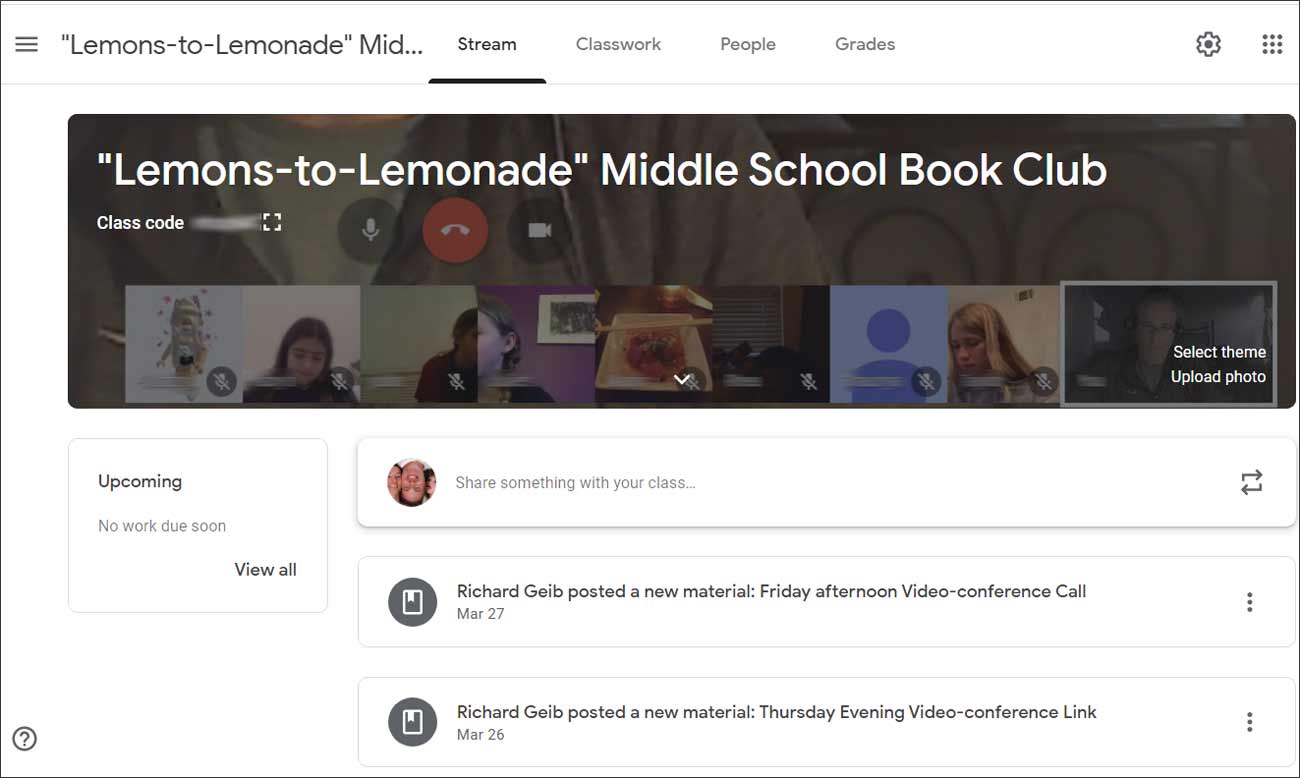
First of all, I have run a “Lemons to Lemonade” middle school online reading club for seventh graders. We are almost done reading and discussing Harper Lee’s To Kill a Mockingbird. The kids have genuinely enjoyed the book, and they have also appreciated the social nature of getting together every evening at seven pm via an online video conference. There is the literary element of following the story of Atticus Finch and Tom Robinson and engaging the themes presented in the narrative arc. Then there is also the social interplay of the kids discussing the book and communicating with each other. It is almost the one time during the day when my daughters can engage their peers. I started the online book club — in my private capacity as Julia’s father, not as a public school teacher — while school was closed to give Julia the opportunity to learn, share, and grow. But I have enjoyed it immensely, too. It takes almost two months for me to cover that book in my high school classroom, but we will finish the book tomorrow in only eight days — and I did not feel like we were moving too quickly. We have all day to read! Tomorrow after we finish the book we will make popcorn and watch the famous 1962 movie version of the book starring Gregory Peck. Good times! I will suggest we read Orson Scott Card’s Ender’s Game next, if the kids want to continue the book club. An old middle school teacher friend used to claim Ender’s Game was the “perfect young adult book for junior high.” We shall see. They also made that book into a credible 2013 movie starring Harrison Ford. We can watch it too after we read the book. Much to look forward, even locked down in semi-quarantine.
My younger daughter Elizabeth has written numerous essays for me. She has written letters to her classmates explaining what our family does all day at home, and done a research paper on house cats. She has also read To Kill a Mockingbird with us. She cried this morning when we got to the part where prison guards shot Tom Robinson as he tried to escape. The book is powerful stuff for a ten-year old. Elizabeth might be a bit young, but she can stretch with my help and appreciate the novel nonetheless. We have had to have many discussions about the American South, race and prejudice, and the legal system. We read every word of the novel together and that took some twelve hours to achieve. It is hard to find that many hours in normal times. But Elizabeth and I have more than enough hours in these abnormal times.
Under duress and with almost no time to plan for it, the local school district has unloaded mediocre pablum as an online education offering for my daughters. I told Julia to give it a shot. If it is mostly a waste of her precious time, as I suspect it is, then I told her she does not have to do it. She has already had some mediocre and even bad teachers in her seventh grade year, and I don’t want the educational experience further sullied for her. Watching canned online videos for hours everyday might just result in a young person learning to hate learning. It is like doing online traffic school all day everyday, Monday through Friday. If this is the best the school system has to offer, we are out (at least temporarily).
I can offer Elizabeth and Julia much better at home. And I am.
So Julia and I are both taking the popular “Science of Happiness” class by Yale Professor Laura Santos through Coursera. So far it has been pretty good! We have had several good conversations about materialism and happiness in week one of the course. Does money make you happy? Does physical attractiveness equal personal happiness? Lots to discuss with my thirteen/year old daughter! Professor Santos is even having a live webinar on Monday morning at 9:00 am about happiness in the age of Coronavirus outbreak. We are also taking ”How to Write an Essay” by UC Berkeley’s Professor Maggie Sokolik through EdX. I was thinking next month to do ”Growth Mindset” from alison.com. Also, I would hope to take ”Rhetoric: The Art of Persuasive Writing and Public Speaking” by Harvard’s Professor James Engel. This is in addition to my online book club. I am excited at the prospect of this academic smorgasbord. He who cannot learn himself cannot teach others.
So the payoff really comes when Julia and I take the courses together. I take full liberty to skip ahead or backtrack in the curriculum, if needed, according to my judgement. For example, Professor Sokolik has large helpings of grammar at the beginning of her course, and experience has told me grammar instruction must be short and in context, lest it bore one to death. There is great literature and powerful writing; then there are grammar martinets and humorless scolds. I have always told my Advanced Placement students to thank-their-lucky-stars if they had some grammar scold for a junior high English teacher. It might be a thankless job to drill into a pre-teen’s brain what is proper grammar and what is not, but one benefits from such instruction the rest of one’s life. It is a bit like eating vegetables: not terribly fun, but good for you. I am usually against force feeding students any learning, but I make an exception for the middle school grammar martinet. Alas, now I find myself by necessity in this role of the grammar scold. Sigh. We skipped the length disquisitions on grammar and I tried to give Julia the quick-and-dirty version. But I will review preferring the active versus to the passive voice, how to mix in short vs. long sentence length, and chanting the “omit needless words” mantra again and again with her.
Julia will write a new essay almost daily, and then that next morning we will discuss grammar, word choices, and organization. I will have her read her essay out loud to hear what they sound like. I will read her my own writing, including this essay. She will revise and revise and then produce a final draft. Julia will read her essay to the family at dinnertime. Her writing will make its way onto her blog. My writing will go on my blog. So we will both exercise our minds and nurture our souls.
Is this so different from what Thomas Jefferson had as a young person? Yes, he had paid tutors back during the days of his youth in colonial Virginia. But Julia and Elizabeth have ME (a high school teacher) and MY WIFE (a third grade teacher) and we are as good as any mercenary intellectual-for-hire one might procure.
We don’t do much science or history. But no elementary and middle schools do much of that anyway, in my experience. If kids have a solid numeracy and literacy base, they can learn all the science and history later. If they lack that base, it will be hard. Teachers and such can help establish the fundamentals for children, but the first and foremost teachers of any child are their parents. I always knew this.
I taught my girls how to read. How to swim. How to shoot. How to hit a tennis forehand. How to ride a bike. How to win and lose a soccer game. How to tie their shoes and brush their teeth. How to say “please” and “thank you.” So many other things, too. And now how to write a succinct, clear essay and to make a plausible, persuasive argument. As they grew older, I began to outsource it. But I started it — did the all-important initial heavy-lifting — and I am always watching. I pay attention — now during this “home-school” experiment more than ever.
My gut tells me we have had many profound educational moments which will bear fruit in the future. But of course we had many of those before the Coronavirus outbreak broke out. But it has accelerated. Now we have the time and energy. Everything else is on hold. This is a gift! I have to remind myself of this in the frustrating moments. Dr. Samuel Johnson claimed, “He has learned to no purpose, that is not able to teach.” How true!
Home-schooling for us is a dynamic process that changes over time. For example, Maria and I decided that tomorrow we would add one block of silent sustained reading to our day. All four of us would gather together to read our own books for sixty minutes. We must choose a “free reading” book for pleasure, not To Kill a Mockingbird, Ender’s Game, or any other book we are studying formally. This hour of reading is just for fun. In addition, I am urging Maria to find and join some of the free yoga classes supposedly being live streamed over the Internet by boutique studios around the county. What works we shall continue. What doesn’t we won’t.
What else?
I have been playing lots of tennis, observing social distancing rules. I could play tennis each day all day, if I wanted. But I know at 52-years of age that would result in an overuse injury so I schedule my calendar carefully. So I am back on my road bike, and even using my semi-neglected rowing machine. I think we paid almost $1,000 for this suddenly valuable home exercise tool. Rowing is such a great workout: whole-body, low-impact, quick and efficient. I am a new fan of the ”Dark Horse Rowing” youtube channel. In particular, after my road bike work I enjoy the 20 minute HIIT rowing sprint session. For her PE class, my younger daughter Elizabeth Anne frenetically dances along with me during the 30-second sprint portions of the interval workout —
— daddy-daughter good times!
I badly miss my almost daily lap sessions at the pool. But this makes up for it somewhat. I have long wanted to use my rowing machine, and now I am. The workouts have changed but I am hardly going without. There are silver-linings in this COVID-19 crisis.
So overall I cannot complain. In fact, I know I am fortunate. And I have reminded my daughters of this, too, and they shake their heads in agreement. We experience the grace which gratitude brings with it. We will make the best of it.
Control what you can control. Show flexibility and an ability to adapt. We are all doing the best we can.
Who knows what will happen next? They say the hospitals will soon be overwhelmed with the sick and dying from complications of Coronavirus infection. The economic news goes from bad to worse to disastrous, and I have stopped paying attention to it. We shall see.
Human beings sure can suffer, but we are also inventive and resilient. We are a problem-solving species. And this is not the first time homo sapiens have suffered a plague. We are fragile and tough at the same time.
So I have faith. I do not panic. We shall see what happens.
Wish me luck, dear reader. Wish all of us luck. We may need it.
And check out my daughter’s blog now and again. Read and appreciate it! I am not the only blogger in the family —
Julia’s Blog
— she has so much potential. Julia has such a strong start in life. I am so proud. Perhaps I am biased.
So even with these recent mass disaster contretemps, I am grateful for what I have. I am so lucky.
They ask me what gift I want for my birthday or for Christmas and I immediately say the following: “The love and respect of my family and friends. That’s all I want.”
So much I have and more. Beyond that, I have few needs. And those are mostly met. “My cup runneth over.”
Thank you, God.
Amen.
* It is a delicate task to be a parent-teacher — you have only so much latitude to crack the whip. Some learning is tedious and more than a bit boring. This cannot be avoided. One must slog through. A teacher can insist that a student stay the course until inevitably the content is absorbed or the class material livens. But as a parent one must be cautious. One picks one’s fights as a father of a thirteen-year old daughter, and I will end my lesson for the day when learning becomes too hard and my daughter-student tires. I must tread lightly. It is tricky. I go day-to-day with this. I don’t know. We shall see.
